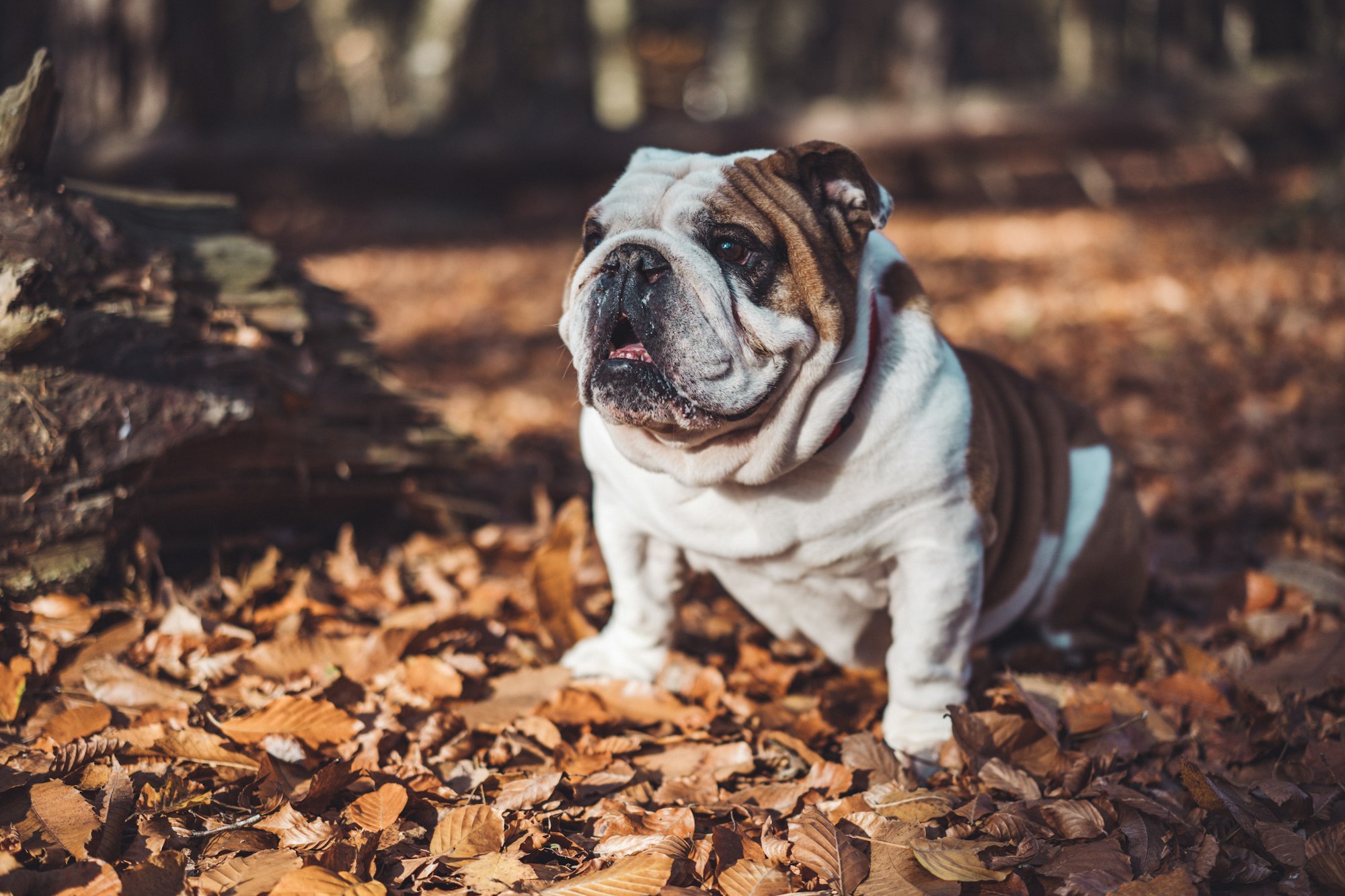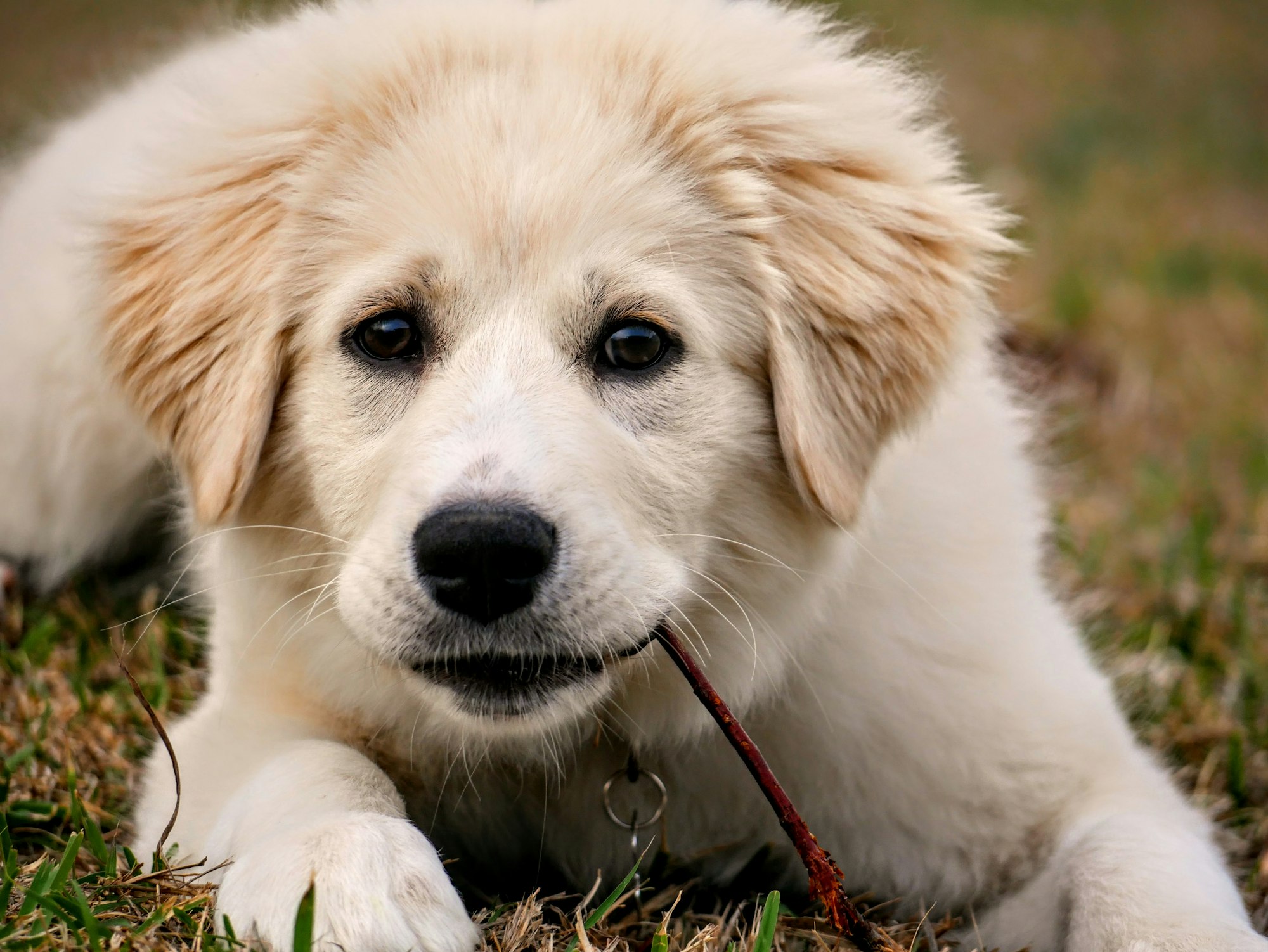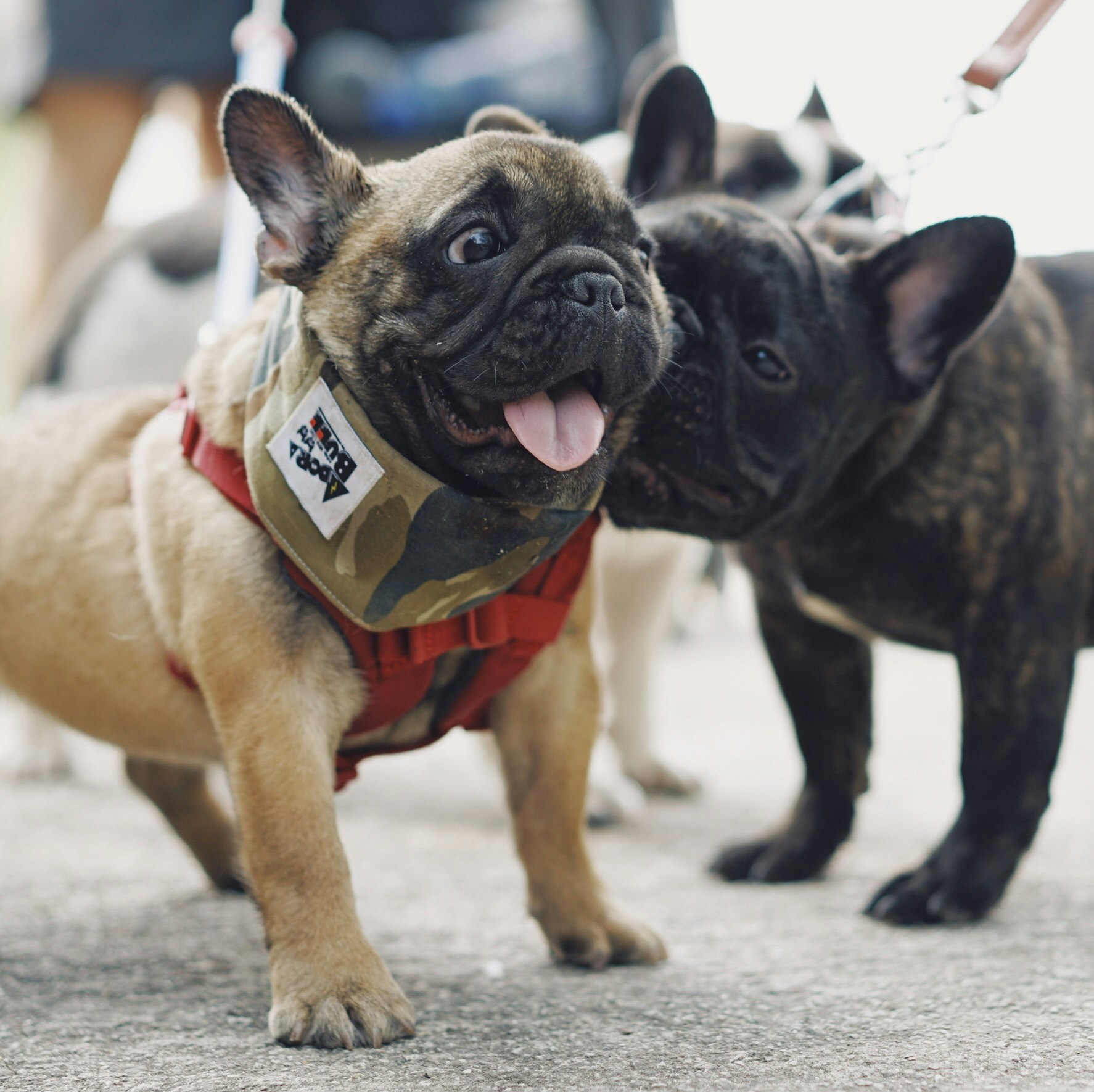France is not only known for its rich history, art, and culture but also for its diverse range of dog breeds. From small and lively companions to strong and noble working dogs, French dog breeds have captured the hearts of dog lovers worldwide. In this article, we will delve into the fascinating world of French dog breeds, exploring their origins, characteristics, and the roles they play in society. So, let's embark on a journey through the captivating world of French canines.

France boasts a remarkable variety of dog breeds, each with its distinct characteristics and history. These breeds showcase the skill and dedication of French breeders throughout the centuries. From the regal Great Pyrenees to the charming Bichon Frisé, French dogs have gained recognition for their beauty, versatility, and loyalty.
Small French Dog Breeds
1. Bichon Frisé
The Bichon Frisé, a small and fluffy dog breed, is known for its cheerful disposition and affectionate nature. With its hypoallergenic coat and charming personality, the Bichon Frisé has become a popular choice for families and individuals alike.
2. Papillon
The Papillon, meaning "butterfly" in French, is named after its distinctively large and wing-like ears. This elegant and intelligent breed is highly adaptable and excels in various dog sports, showcasing its agility and grace.
3. French Bulldog
The French Bulldog, often referred to as the Frenchie is a compact and muscular breed with a unique appearance. Despite its small size, the Frenchie possesses a bold and affectionate temperament, making it an ideal companion for families and urban dwellers.
Medium-sized French Dog Breeds
1. Brittany Spaniel
The Brittany Spaniel, also known as the Brittany or Epagneul Breton, is a versatile gundog with exceptional hunting skills. This breed combines athleticism, intelligence, and gentle nature, making it a beloved choice for both hunters and families.
2. Beauceron
The Beauceron, originating from the French countryside, is a powerful and fearless herding dog. Renowned for its loyalty and protective instincts, the Beauceron excels in various tasks, including herding, guarding, and search and rescue.
3. Pyrenean Shepherd
The Pyrenean Shepherd, or Berger des Pyrénées, is an energetic and agile herding breed. With its strong work ethic and intelligence, this medium-sized dog excels in herding livestock and is a devoted companion for active individuals and families.
Large French Dog Breeds
1. Great Pyrenees

The Great Pyrenees, also known as the Pyrenean Mountain Dog, is a majestic and noble breed. Originally bred to guard livestock, this gentle giant possesses a calm and patient demeanor, making it an excellent family companion.
2. Dogue de Bordeaux
The Dogue de Bordeaux, often called the Bordeaux Mastiff or French Mastiff, is a massive and powerful breed. Despite its imposing appearance, this dog is renowned for its gentle and affectionate nature, forming strong bonds with its family.
3. Briard
The Briard, known for its long and luxurious coat, is a versatile working dog with a rich history. Intelligent, protective, and loyal, the Briard has excelled in various roles, including herding, guarding, and search and rescue.
Unique French Dog Breeds
1. Berger Picard
The Berger Picard, an ancient herding breed, is characterized by its shaggy coat and expressive face. With its independent and intelligent nature, this breed thrives on mental and physical stimulation, making it an excellent choice for experienced dog owners.
2. Basenji
The Basenji, often called the "barkless dog," is a small and agile breed originating from Central Africa. Known for its cat-like independence and unique vocalizations, the Basenji is a fascinating and spirited companion.
3. Barbet
The Barbet, a water retriever breed, is distinguished by its curly, dense coat and webbed feet. This versatile and sociable dog excels in various activities, including water sports, search and rescue, and therapy work.
The Historical Significance of French Dog Breeds
French dog breeds hold a significant place in history, representing the country's deep-rooted connection with dogs and their diverse roles. These breeds have played essential roles in various aspects of French life, including hunting, herding, companionship, and protection.
Historically, French hunting breeds, such as the Brittany Spaniel and the Beauceron, were highly valued for their exceptional skills in assisting hunters. These dogs displayed remarkable intelligence, agility, and a keen sense of smell, making them indispensable companions in the pursuit of game. French nobility and aristocracy often kept packs of hunting dogs, and the breeding and training of these breeds became an esteemed tradition.
In addition to hunting breeds, French dog breeds have been valued for their herding abilities. The Pyrenean Shepherd, with its energy and agility, was particularly adept at herding livestock in the rugged mountainous regions of France. These dogs played a crucial role in assisting shepherds and ensuring the safe movement of flocks.
Moreover, French dog breeds also found favor as companion animals among the upper classes. Breeds like the Bichon Frisé and the Papillon were cherished for their elegance, charm, and affectionate nature. These small breeds were often seen accompanying their owners to social gatherings, serving as delightful companions and lapdogs.
The Role of French Dog Breeds Today

French dog breeds continue to make an impact in modern times, serving a variety of roles and captivating the hearts of dog enthusiasts worldwide. While some breeds maintain their traditional roles, others have adapted to new roles and responsibilities in an evolving society.
In contemporary France and beyond, French dog breeds are cherished as beloved family pets. Their loyal, friendly, and sociable nature makes them excellent companions for individuals and families alike. French Bulldogs, with their endearing personalities and adaptability, have gained immense popularity as urban pets, providing companionship and joy to city dwellers.
Furthermore, many French breeds have found success in various dog sports and competitions. Their intelligence, agility, and trainability make them well-suited for activities such as obedience trials, agility courses, and even search and rescue operations. The Beauceron, for example, continues to excel in herding trials and protection work, showcasing its versatility and working capabilities.
Additionally, French dog breeds have taken on roles as therapy dogs, providing comfort, support, and assistance to individuals in need. Their gentle and affectionate nature, combined with their inherent ability to form deep connections, makes them well-suited for providing emotional support and therapy to people in hospitals, nursing homes, and other therapeutic environments.
Overall, French dog breeds play a significant role in today's society as beloved companions, working dogs, and ambassadors of the rich canine heritage of France. Their versatility, loyalty, and distinctive traits continue to captivate dog lovers and contribute to the diverse tapestry of the canine world.
Training and Care for French Dog Breeds
Proper training and care are essential for the well-being and development of French dog breeds. Here are some important considerations when it comes to training and caring for these breeds:
Training:
1. Start Early: Begin training your French dog breed as early as possible. Early socialization and obedience training will help them develop good behavior and manners.
2. Positive Reinforcement: Use positive reinforcement techniques, such as treats, praise, and rewards, to motivate and encourage your dog during training sessions. Avoid harsh or punishment-based methods, as they can be detrimental to their well-being.
3. Consistency: Establish consistent rules and routines for your dog. French breeds respond well to consistent training methods and clear boundaries.
4. Mental Stimulation: Engage your dog's mind with interactive games, puzzle toys, and training exercises. Mental stimulation is crucial for preventing boredom and destructive behaviors.
5. Socialization: Expose your French dog breed to various people, animals, and environments from a young age. Proper socialization will help them become well-rounded and confident dogs.
Care:
1. Exercise: Provide regular exercise suitable for your French dog's energy levels and breed requirements. This may include daily walks, play sessions, or interactive activities. However, be mindful of their limitations, especially for brachycephalic breeds like the French Bulldog, which may have difficulty with excessive exercise or heat.
2. Grooming: Attend to the grooming needs of your French dog breed. Some may require regular brushing to maintain their coat, while others may need professional grooming. Trim their nails, clean their ears, and brush their teeth regularly to ensure their overall health.
3. Balanced Diet: Feed your French dog breed a balanced and nutritious diet recommended by your veterinarian. Obesity can be a concern for some breeds, so monitor their weight and adjust their diet accordingly.
4. Regular Veterinary Care: Schedule regular check-ups with a trusted veterinarian. Vaccinations, preventive treatments for parasites, and routine health examinations are essential for maintaining your dog's well-being.
5. Love and Attention: French dog breeds thrive on love, attention, and human companionship. Provide them with ample affection, quality time, and a safe, comfortable environment.
Remember, each French dog breed has unique characteristics and care requirements. Research and consult with breeders, veterinarians, or experienced owners to ensure you provide the best training and care tailored to your specific breed.
Choosing the Right French Dog Breed for You
When selecting a French dog breed, it's important to consider your lifestyle, living situation, and personal preferences. Here are some factors to keep in mind:
1. Size: Determine whether you prefer a small, medium-sized, or large dog breed. Consider your living space and whether you have enough room for a larger breed.
2. Energy Level: Assess your activity level and choose a breed that aligns with it. Some French breeds require more exercise and mental stimulation, while others are content with moderate activity.
3. Allergies: If you or anyone in your household has allergies, consider hypoallergenic breeds like the Bichon Frisé or the Poodle mix breeds.
4. Temperament: Research the temperament traits of different French breeds and choose one that matches your lifestyle and personality. Some breeds are more outgoing and sociable, while others are more independent or reserved.
5. Training and Maintenance: Evaluate your commitment to training and grooming. Some French breeds may require more intensive training or regular grooming due to their coat type or specific needs.
6. Family Considerations: If you have children or other pets, select a breed known for being good with kids and compatible with other animals.
7. Breed-Specific Health Concerns: Learn about any potential health issues associated with the breed you are interested in and consider whether you are prepared to handle any potential challenges that may arise.
By considering these factors, you can make an informed decision and choose the right French dog breed that will fit harmoniously into your life and bring you joy and companionship for years to come.
Conclusion
French dog breeds embody a remarkable blend of beauty, intelligence, and loyalty. From the playful Bichon Frisé to the regal Great Pyrenees, these breeds have captured the hearts of people around the world. By understanding their origins, characteristics, and roles in society, we can appreciate the rich canine heritage of France.
FAQs (Frequently Asked Questions)
1. Are French dog breeds good with children?
Yes, many French dog breeds are known for their affectionate and gentle nature, making them great companions for children. However, it's essential to supervise interactions and teach children how to respect and properly handle dogs.
2. Do French dog breeds require a lot of exercise?
Exercise needs vary among different French dog breeds. While some breeds require moderate exercise, others have high energy levels and need more vigorous activities. It's critical to match the exercise requirements of the breed with your lifestyle and commitment to providing regular physical activity.
3. Are French dog breeds prone to any specific health issues?
Like all dog breeds, French dog breeds may have specific health concerns. It's essential to research and consults with reputable breeders or veterinarians to understand any potential breed-specific health issues and take appropriate measures to ensure the well-being of your furry companion.
4. Can French dog breeds adapt to apartment living?
Yes, many French dog breeds can adapt well to apartment living as long as they receive sufficient exercise, mental stimulation, and attention. However, it's crucial to consider the breed's energy levels, exercise requirements, and noise levels to ensure a harmonious living environment.
5. What is the average lifespan of French dog breeds?
The average lifespan of French dog breeds varies depending on the breed and individual factors such as genetics, diet, exercise, and overall healthcare. On average, smaller French breeds may live around 12 to 15 years, while larger breeds may have a lifespan of 8 to 12 years.